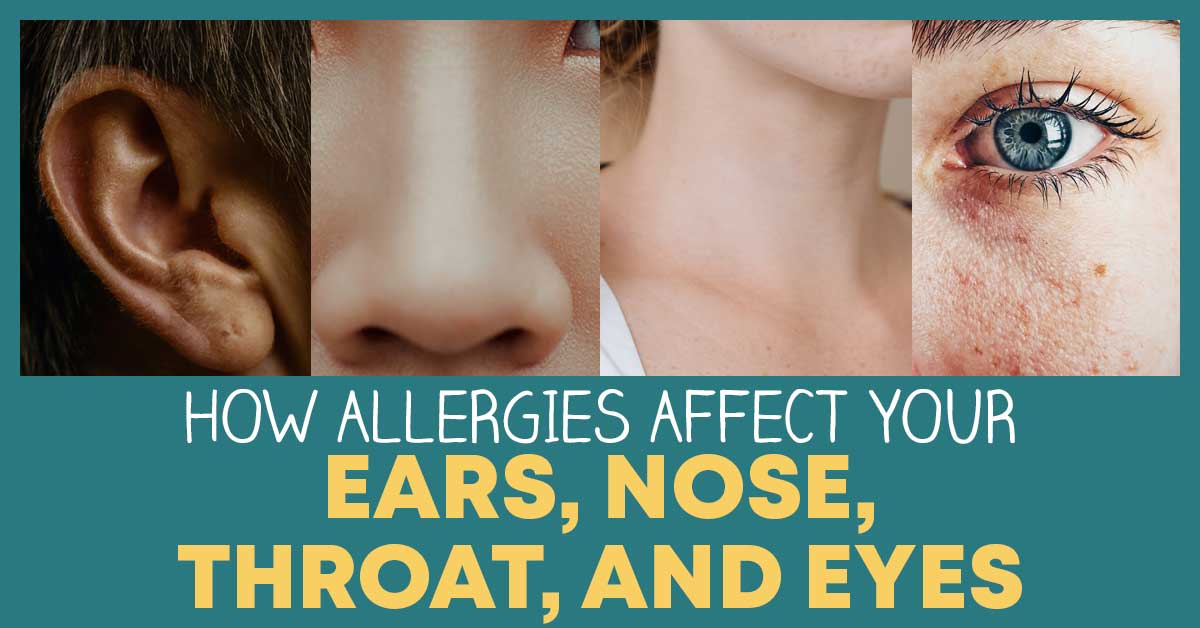If you have allergies, the changing of the seasons can be a difficult time of the year for you. The CDC estimates some 50 million people have allergies. Some of these allergies can even develop in adulthood, or change throughout your life.
The area of the body most commonly affected by routine allergies (either seasonal or year-round) is your ears, nose, throat, and eyes.
We’re going to take a look at each of these parts of the body and explain why our bodies may react the way they do. All of these allergies are the result of a foreign substance (like pollen) causing sensitivity in your body. When this happens, your body responds by producing antibodies that release histamine.
It is this histamine that causes the itching and mucus reaction that comes with many common allergies.
Ears
Itching and mucus fluid can cause discomfort in your ears during an allergic reaction when your body releases histamine. The itching can occur on the outer wall of the ear, but the fluid can also build up inside the ear. Because the mucus clogs the middle year and is not able to drain effectively and pressure builds up.
As a result, some individuals experience short-term hearing loss during an allergic reaction while others may experience an ear infection if the fluid does not drain on its own.
Nose
The nose is arguably the most common area where individuals experience symptoms of an allergic reaction.
Your nose constantly produces a small amount of mucus as a means to help filter allergens out of your lungs. This excess mucus drains into your throat, which only becomes an issue when there is an overabundance of mucus as the result of an allergic reaction.
This build-up can cause you to sneeze, blow your nose frequently or have mucus accumulate in your throat.
Throat
The mucus that drains out of your nose can cause additional issues in your throat. A buildup of mucus in your throat can cause you to cough, need to clear your throat frequently, or develop a sore throat.
In the case of more severe allergies, your throat may swell because of the allergen and the issue becomes more significant than simply mucus.
Eyes
Dry eyes are often the first warning sign for many individuals that an allergic reaction is starting. Eyes can become inflamed, red, and itchy resulting from exposure to allergens.
Because eye allergies can cause irritation that can make it difficult to see properly, many individuals will elect to take antihistamine pills to block the histamine reaction that causes their watery and itchy eyes.


